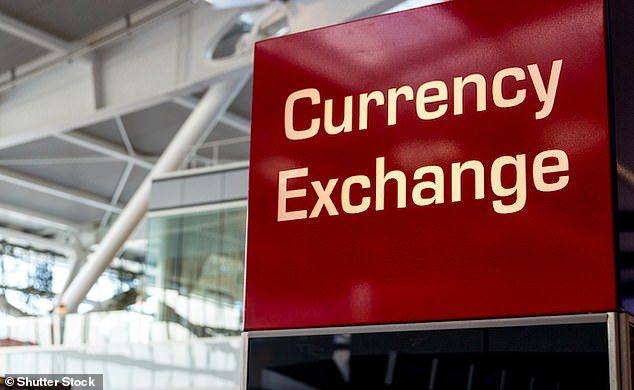More and more under-25s are turning to cash for holiday expenses… because it helps them with budgeting
- Demand for foreign currency has increased among 18-24 year olds going abroad
- They are now four times more likely to order cash than before the pandemic
<!–
<!–
<!– <!–
<!–
<!–
<!–
Young people are rediscovering the benefits of using cash instead of cards on holiday, according to a new study.
Jet-setting 18 to 24-year-olds are four times more likely to withdraw foreign currency than use cards or mobile apps to spend money abroad, compared to four years ago, data from travel money chain No1 Valuta shows.
This age group now accounts for 13.7 percent of foreign currency orders placed on No1 Valuta's website, up from 3.4 percent in 2019.

Watching the pennies: Young people on holiday are increasingly spending cash as it helps them keep control of their money, a study shows
It reflects a growing trend for cash use in Britain. Data from industry body UK Finance shows that the use of cash increased last year for the first time in a decade, and Nationwide Building Society recorded a second annual spike in cash withdrawals from its ATMs.
There are a plethora of current accounts and apps offering free or low-cost spending and budgeting abroad, and according to UK Finance, 18-24 year olds are by far the most likely to use mobile and contactless payments at home.
Just this week, a new foreign currency exchange app hit the market in Britain. HSBC-backed Zing is a multi-currency payment card app set up to compete with challengers Revolut and Wise.
These apps have won millions of customers with their offers of cheap foreign currency, with many using them along with other app-based checking accounts such as Monzo and Starling for free spending abroad.
But under-25s are said to be turning to old-fashioned cash because having the money in hand helps them stay on budget on holiday.
In stark contrast to this trend, barely one in ten orders for foreign banknotes now come from those over 65, a drop of more than a third compared to the rate recorded in 2019 when that figure was 17.1 percent.


Cash is back: There has been a rise in the number of under-25s choosing to use foreign currency when traveling abroad
There was a general increase in demand for foreign currencies in 2023, No1 Valuta reports.
In many countries, cash is still the name of the game, so having some local money in your pocket can make traveling easier – whether it's paying for a taxi or leaving a tip.
However, there are also advantages to using a credit or debit card: they can be canceled if lost or stolen abroad, and banks can offer payment protection if something else goes wrong.
Simon Phillips, director of No1 Valuta, said: 'The jump in demand for foreign currency from Britons heading abroad is about more than just the revival of the travel sector following the pandemic.
'We're seeing more and more British travelers – including digital natives who typically use their mobile phones to pay for almost everything at home – opting for the convenience, practicality and security of cash abroad.'
